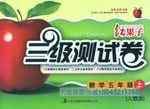题目内容
A recent study, while showing a generally positive attitude toward science, also suggests a widespread worry that it may be “running out of control”. This idea is dangerous.
Science can be a force for evil as well as for good. Its applications can be channeled either way, depending on our decisions. The decisions we make, personally or collectively, will determine the outcomes of science. But here is a real danger. Science is advancing so fast and is so strongly influenced by businesses that we are likely to believe whatever decisions we come to will make little difference. And, rather than fighting for the best possible policies, we may step back and do nothing.
Some people go even further. They say that despite the moral and legal objections(反对), whatever is scientifically possible will be done-somewhere, sometime. They believe that science will get out of control in the end. This belief is dangerous too, because it fuels a sense of hopelessness and discourages then from making efforts to build a safer world.
In our interconnected world, the lack of agreement in and out of the world of science can lead to the failure to control the use of science. Without a common understanding, the challenges of “controlling” science in this century will be really tough. Take human cloning for example. Despite the general agreement among scientists on its possible huge impact(影响) on traditional moral values, some countries still go ahead with the research and development of its related techniques. The outcomes are hard to predict.
Therefore, discussions on how science is applied should be extended far beyond scientific societies. Only through the untied efforts of people with hope, can we be fully safe against the misuse of science and can science best serve mankind in the future.
1.What can we conclude from the recent study?
A.People think highly of science.
B.People hold mixed opinions about science.
C.Science is getting dangerously out of control.
D.Science is used for both good and bad purposes.
2.According to the passage, what will happen if we hold that science is getting beyond control?
A.The development of science will hopelessly slow down.
B.Businesses will have even greater influence on science.
C.The public will lose faith in bringing about a bright future.
D.People will work more actively to put science under control.
3.The discussion should reach beyond scientific societies because ________.
A.scientists have failed to predict the outcomes
B.the ties between different areas need strengthening
C.united efforts are necessary for the development of science
D.people need to work together to prevent the bad use of science
4.What is the main idea of the passage?
A.Science and its applications bring us many dangers.
B.The development of science mostly lies in people’s attitudes.
C.Mankind can largely take control of science with their efforts.
D.The future of science will be influenced by the dangerous ideas.
BCDB

 英才点津系列答案
英才点津系列答案 红果子三级测试卷系列答案
红果子三级测试卷系列答案A recent Living Social survey showed that Americans may live up to their poor reputation while travelling abroad. But what’s more surprising is that many of those surveyed self-identified themselves as ‘ugly’ Americans and the world’s worst travelers.
Those in the U.S. ranked themselves as the worst travellers by a shocking 20 per cent, followed by 15 per cent saying the Chinese were the most substandard tourists.
Americans topped the list as being the worst-behaved travelers in a survey of 5,600 respondents, 4,000 of whom were Americans. Other respondents were in Australia, Canada, Ireland and the United Kingdom. But even American respondents considered their compatriots(同胞) as the worst travelers from a list of 16 nationalities.
Canadians and Australians also put Americans in the No. 1 spot. Irish respondents pointed to U.K. residents and U.K. respondents gave Germans the nod. On the other hand, 37% of Americans opted for "none of the above" in answer to the worst-tourists question, displaying more tolerance and open-mindedness than the other nationalities.
Other survey questions had respondents admitting pilfering from hotels. Four in ten U.S. survey-takers said they’d stolen something – mostly towels (28%) and bathrobes (8%). Other popular pinched items included pillows, remote controls, Bibles and sheets.
Not surprising is that Americans have less time off from work than other nationalities. Americans reported getting 16 days off, compared with 28 days for the Irish, 27 days for Australians, 23 days for U.K. workers; and 21 days for Canadians.
In the travel mishaps department, the most common travel disaster reported by Americans was lost luggage on an airline (21%); bad weather (21%); and getting very lost (16%).
As for places Americans most want to see, Disney World and Las Vegas made the top 10, but they weren't at the top of the heap. And New York didn't make the cut.
1.What percentage of American respondents is in the survey?
|
A.20 % |
B.15% |
C.71% |
D.37% |
2.The underlined word “pilfering” in Para. 5 most probably means ________.
|
A.taking |
B.bringing |
C.stealing |
D.borrowing. |
3.According to the survey, what kind of things are most taken away by Americans?
|
A.towels and pillows |
|
B.bathrobes and remote controls. |
|
C.towels and Bibles |
|
D.bathrobes and towels. |
4.What’s the best title of this passage?
|
A.Chinese were announced as the world’s worst travellers. |
|
B.The global worst travellers were announced. |
|
C.Disney World is the best destination to Americans. |
|
D.European travellers were the best in the world |
